Teaching my children essential life skills before they graduate is important to me as a homeschool mom. High school is a great time to bring in a course or elective on health and nutrition.
Whether you’re looking for a scientific approach to studying the human body and how it works or searching for ways to motivate your teens to adopt healthier habits, Apologia’s Exploring Creation with Health & Nutrition could be just the thing! Come read my full review of Apologia’s high school health curriculum, including how it’s set up, the topics covered, and our experience with it.
Disclosure: *This post may include affiliate links. As an affiliate, I earn from qualifying purchases. Read the disclosures and terms for more information.
I asked Apologia for this curriculum in exchange for an honest review. All opinions are my own.
Apologia’s Exploring Creation with Health & Nutrition is a thorough high school study of the subject from a Christian perspective. The curriculum comes with the main textbook (currently in the 2nd edition) and a Student Notebook.
The text has a pleasant, conversational tone. It is written by Dr. Laura Chase, a homeschool mom with a degree in biology from Wheaton College and doctorate in dental surgery from Loyola University, Chicago. I specifically mention that because the curriculum reflects well that it’s written by someone who is qualified on the topic and also designed it to fit a homeschooler’s needs.
Here is what’s covered in the main textbook for this high school health curriculum:
- Why health matters: Genetics, temperament, natural inclinations, etc.
- Physical influences on thoughts and feelings: Nervous system, brain illness, endocrine system
- Mental and emotional stability: Decision-making, mental health, illnesses, appropriate vs. inappropriate expression of emotion, etc.
- Relationships: Gender, socialization, communication, conflict resolution
- The senses: Vision, hearing, taste, etc.
- The digestive system
- Nutrition: macronutrients, micronutrients, good food choices
- Respiratory and cardiovascular system and complications
- Skeletal and muscular system
- Physical fitness
- Immune system and the body’s protection against infection
- Physical, spiritual, and emotional rest and wellbeing
- Reproduction, marriage, and health considerations
It does a great job of covering a lot of topics in an engaging way and also includes information on health professions relating to each module’s topics. My son enjoyed the lessons and often said, “oh wow, Mom, listen to this!” Several times, he took away information that led to him making some changes in his habits, such as evaluating his food choices or picking up home workouts as part of his routine. If you have teenagers, you know that’s a big deal! He also mentioned liking the interesting illustrations and diagrams and how the text was laid out.
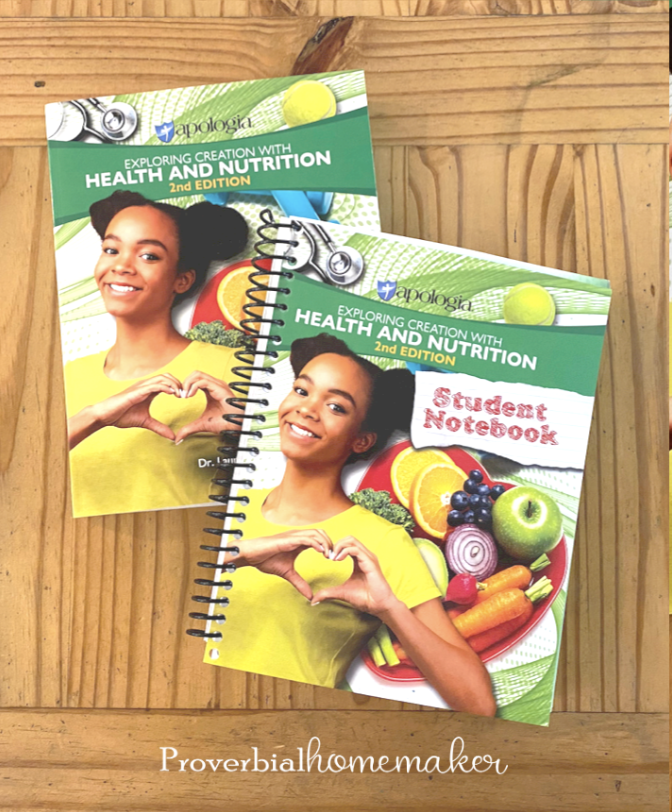
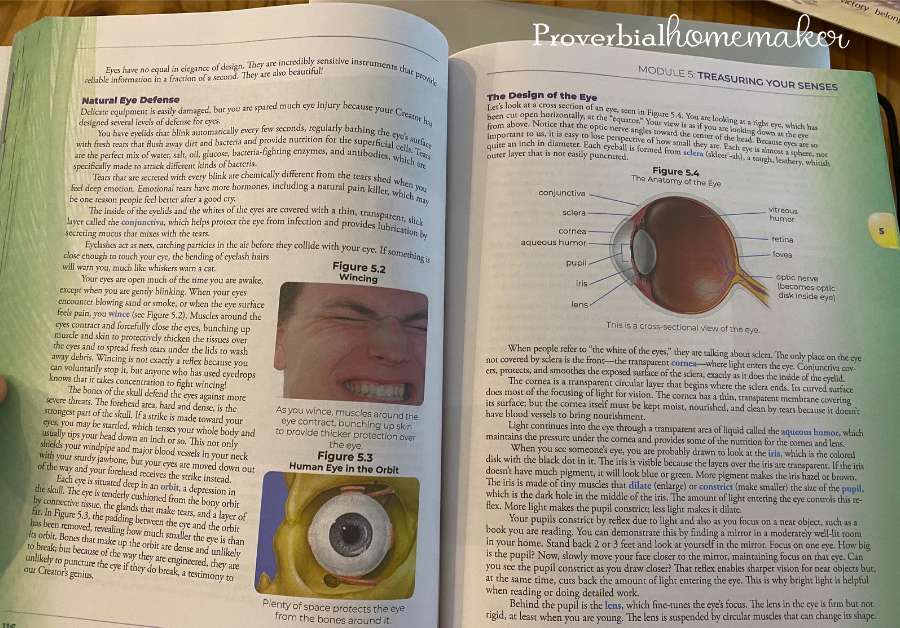
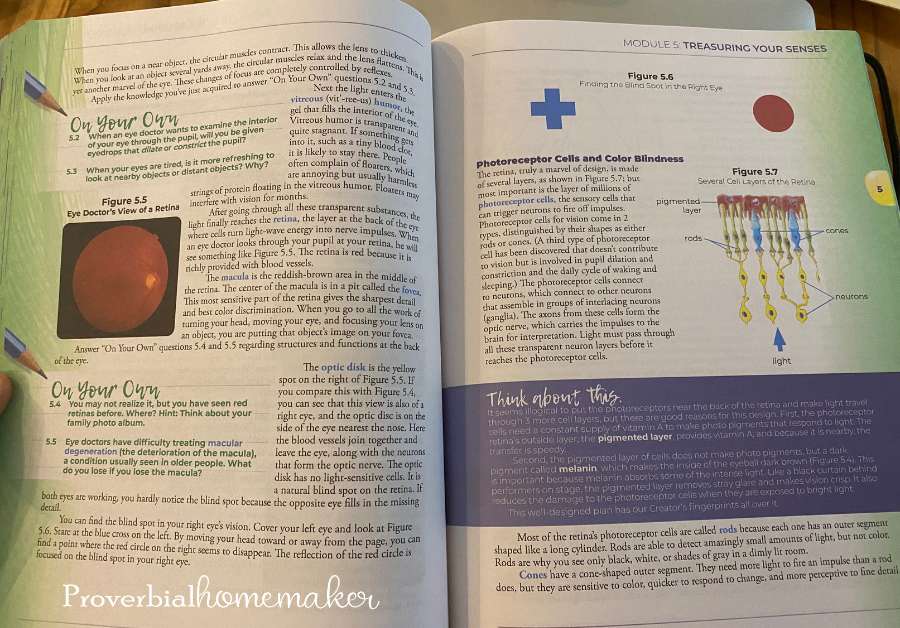
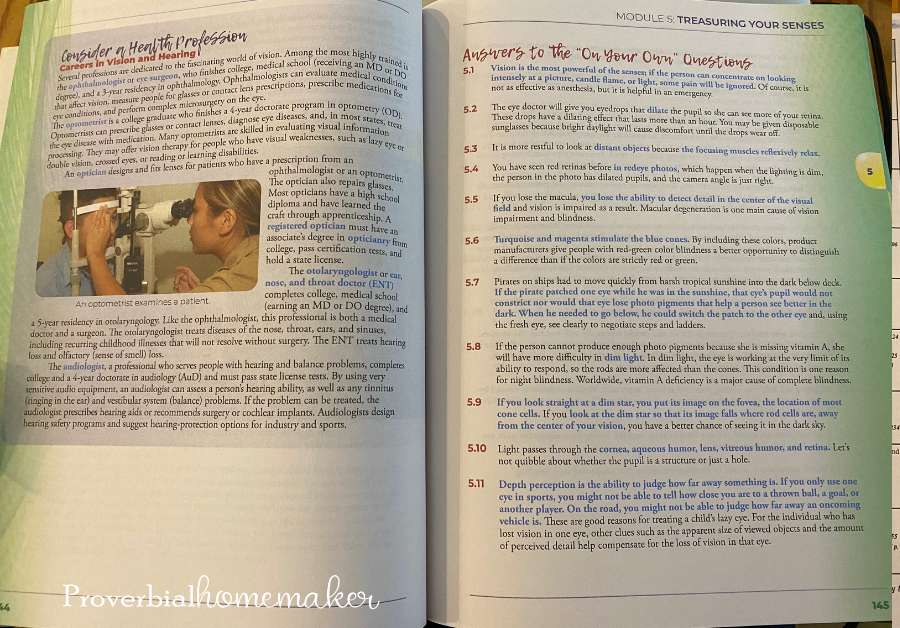
Student Notebook
Apologia’s Health and Nutrition Student Notebook is very well done. Here are some highlights:
- Helpful student and parent tips for using the curriculum effectively
- Grading guidelines and rubrics
- Suggested daily schedule for a full year
- Places to record notes and answers to On Your Own Questions from the textbook
- Several projects to help students to dig deeper into the topic
- Study guides and exams for most modules
I particularly liked the variety of projects, the health profession info, and the Christ-centered focus of the text.
Another thing I appreciated was the fact that the On Your Own question answers are included right in the textbook. We do a lot of reading and narration in our homeschool, which is a Charlotte Mason method. I will often have my son read a chapter of a book, and then I’ll skim it as he narrates it to me, adding anything significant he may have missed. The On Your Own answer key provides another tool to help me do that easily. They would also be helpful for having the student check their own understanding at the end of a section, which is what the Student Notebook instructions suggest.
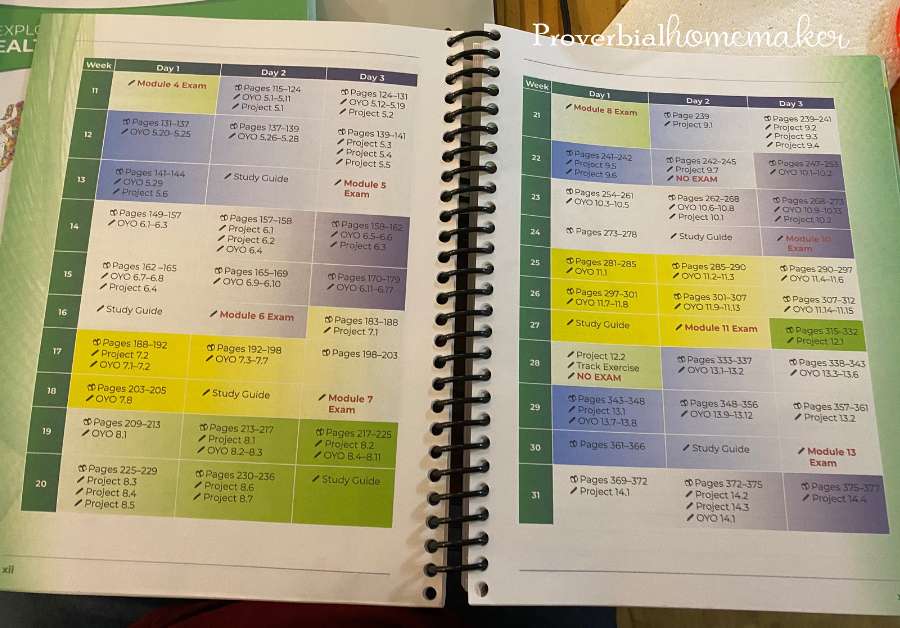
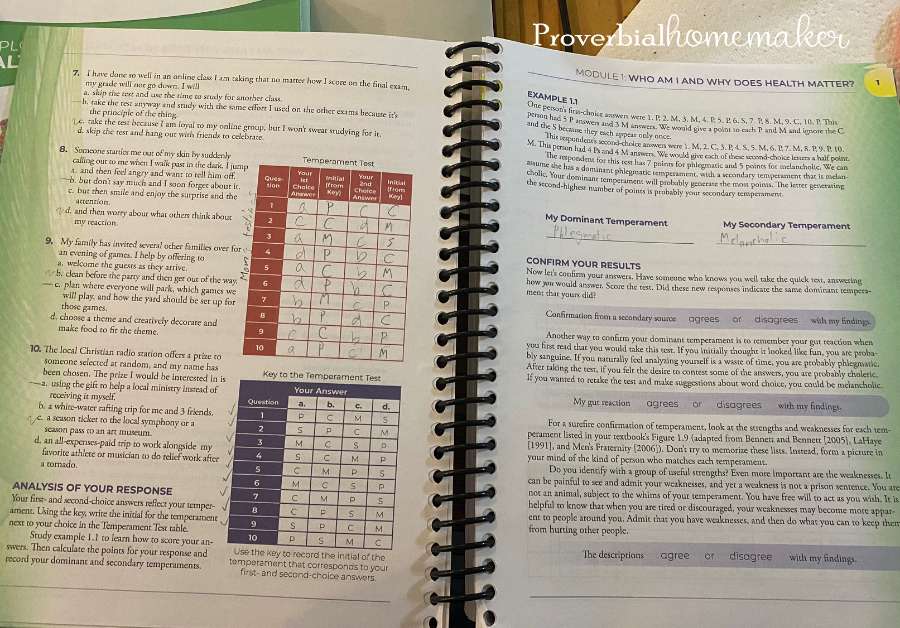
Suggested Schedule for Apologia’s High School Health Curriculum
Deciding how to schedule the course and calculate credits can be a bit confusing. Apologia does provide some guidance on their site, but as credit requirements may vary depending on your own preferences and state requirements, ultimately you’ll have to decide for yourself how to handle that for your student.
1 or 2 Semesters
Apologia states that the course can be taken in one semester by completing one module a week. There are 14 modules. You could also spread it out over the year. This is reflected in the schedule in the Student Notebook, which has students working on the course three times a week.
Elective or State Requirement
Some states require a health and nutrition credit for high school. We’re in Oregon and our state doesn’t have that requirement. Apologia instructs parents to have their child complete both the textbook and the Student Notebook, including projects, in order to complete a state requirement for the course. Apologia says that if you are just doing it as an elective, your student can just read the text and do the On Your Own questions in it for comprehension. You wouldn’t need the notebook in that case.
1 Credit or Half Credit
Here was the part that can be challenging. Do you award full or half credit for this high school health curriculum? As I mentioned earlier, Apologia indicates that it’s up to the parents to decide, as always.
Personally, I’d feel comfortable awarding a full credit if my student read all the text and completed 80% or more of the Student Notebook. If he just read and narrated the text, perhaps answering the provided On Your Own questions (oral or written) I would consider it half a credit.
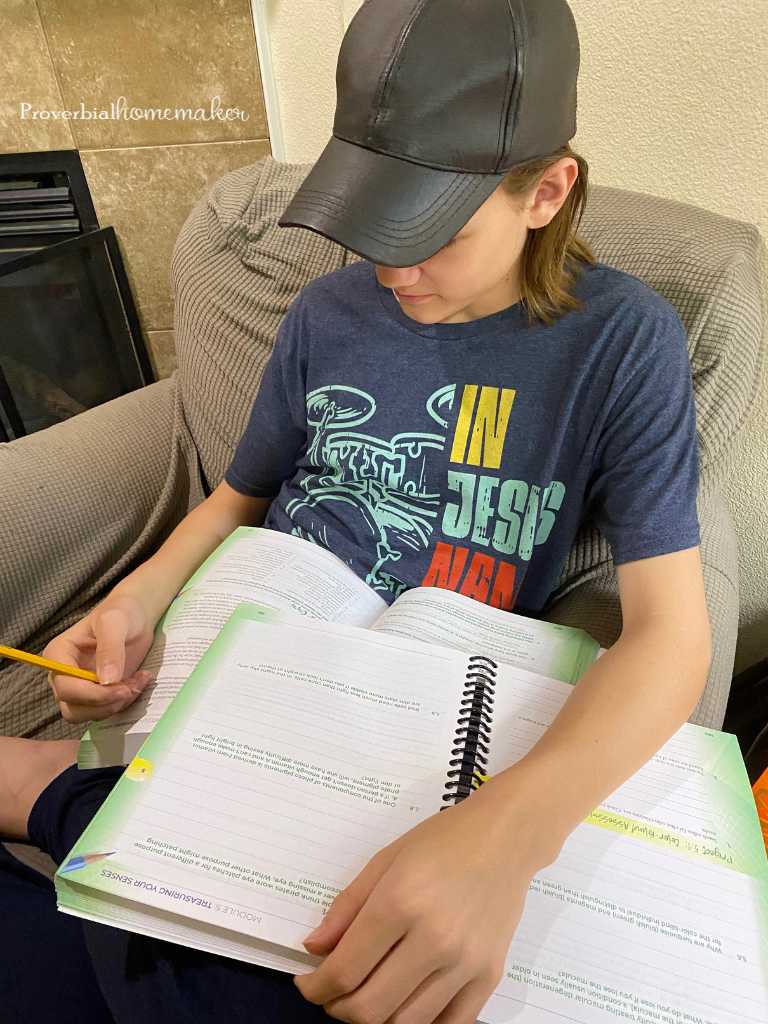
Our Take On It
Whether you do a semester or a year, half-credit or full-credit, the content of Apologia’s Exploring Creation with Health and Nutrition is fantastic. I always appreciate their Christ-centered focus, and this course greatly emphasizes being good stewards of the body and resources the Lord has given us so that we can better glorify Him.
If you have time, it’s worth doing both the textbook and Student Notebook, even if your state doesn’t require a health and nutrition credit. Personally, I would suggest getting the notebook for the elective half-credit option, too, and picking out a few projects that pique your student’s interest. They are very well done and will help your kids learn a lot with this high school health curriculum.
BUT if you only have time for a half-credit course, or just want an excellent one-semester elective for your student covering all the topics I listed above, then by all means, have them read the textbook and narrate/answer the On Your Own questions! I think the information in this course is invaluable for students, both now and when they’re launched into the world.
Bottom Line on Apologia’s High School Health Curriculum
- I love the Christian worldview, up-to-date information, and thorough nature of this course.
- My son says that the topics are interesting and he learned a lot. He really enjoyed some of the projects as well.
- I love the flexibility it provides me as a parent to choose the schedule and learning method that suits us best.
- I hope to see an audio version of the textbook added someday. We do enjoy those from other Apologia curricula for my auditory learners and struggling readers. But this kiddo did just fine without it, too. (They do have an ebook version, if that’s useful for you.)
Want Something Similar for Younger Kids?
This is definitely a high-school level course and I don’t think I’d try it with younger kids, except maybe as a read aloud. But there’s actually a better option for that. If you’re looking for a health and nutrition course for younger kids, I recommend checking out Apologia’s Exploring Creation with Human Anatomy and Physiology. It covers a lot of the same information such as health and nutrition, the different body systems, growth and development, etc.
It’s also for grades K-6, so more age appropriate. It would work well for middle school, too, if you included the Student Notebook. Personally, I would use it as a multi-level teaching resource, reading it it aloud to the kids and narrating / discuss it together.
Learn more about what Apologia has to offer, including math, science, and more!
As homeschool parents, it’s essential to prepare our children with life skills that will benefit them in adulthood. Introducing a high school health course serves as a fantastic way to do that. Apologia’s Exploring Creation with Health and Nutrition is an engaging and comprehensive curriculum that not only equips students with knowledge on the human body and healthy living but does it with a biblical perspective.
Our experience with the curriculum has been outstanding so far. I encourage you to check it out, including the samples, and consider whether it will be a good fit for your high schooler!
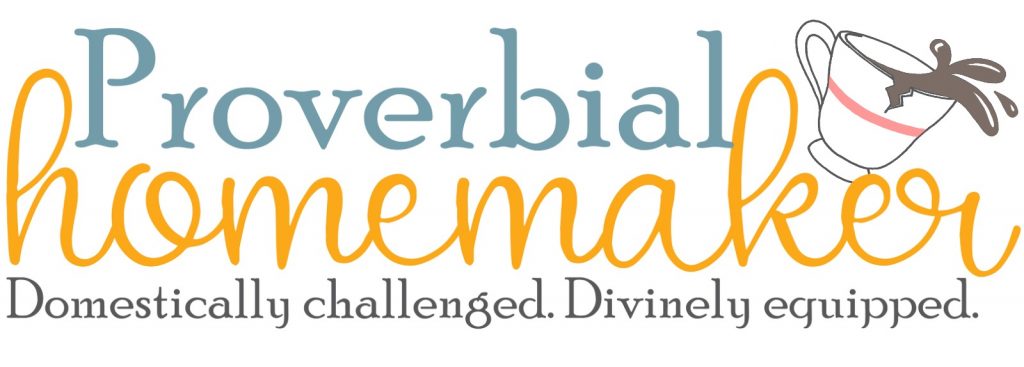
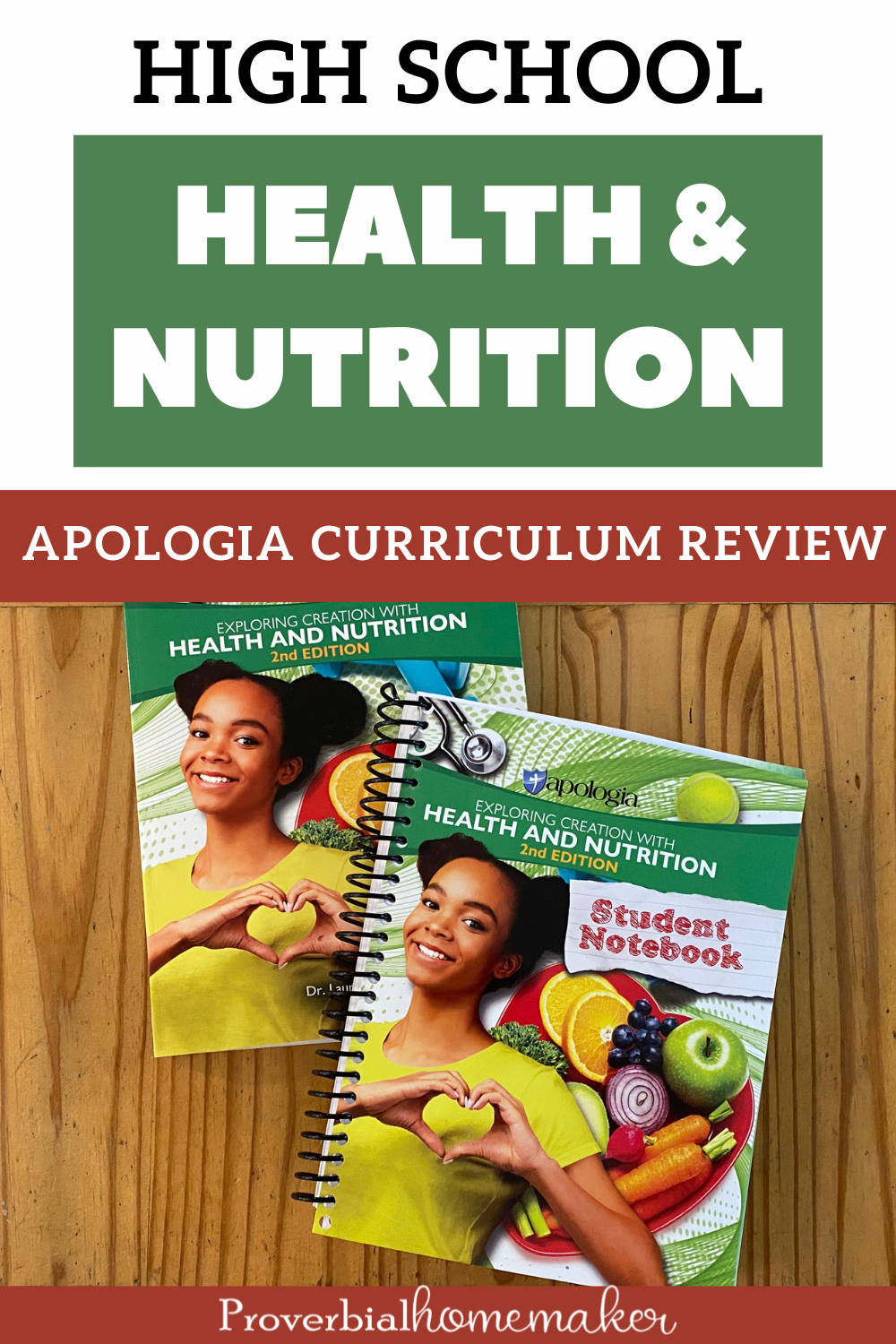
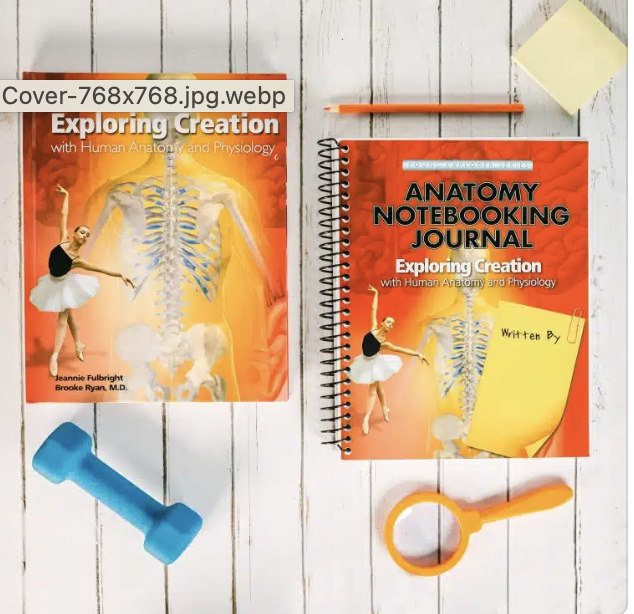
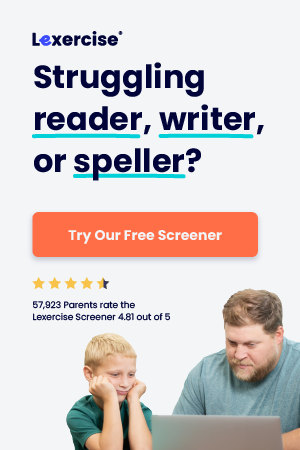
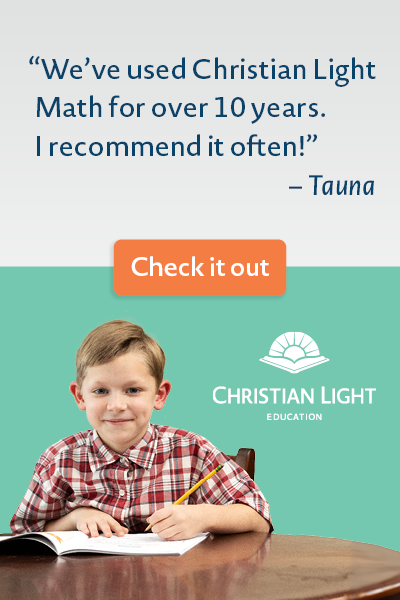
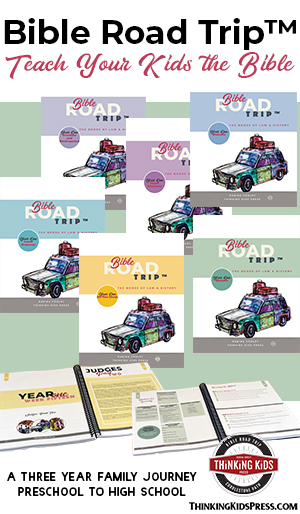
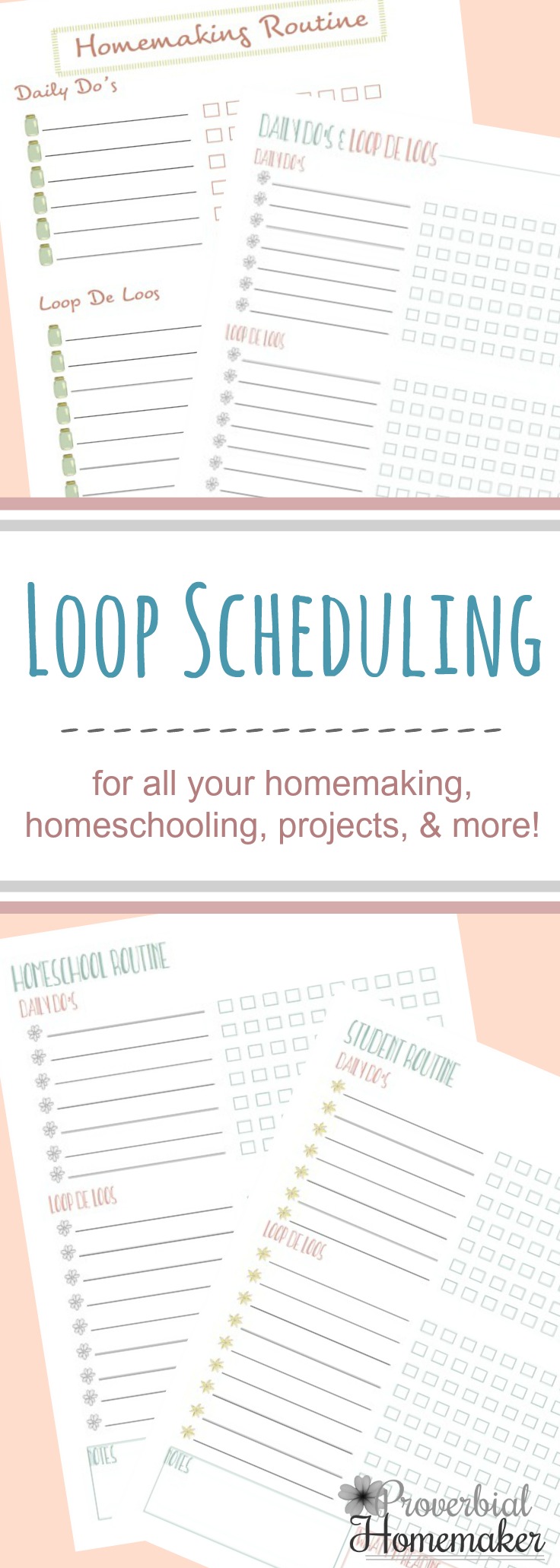

 by Stephanie, The Multi Taskin' Mom
by Stephanie, The Multi Taskin' Mom